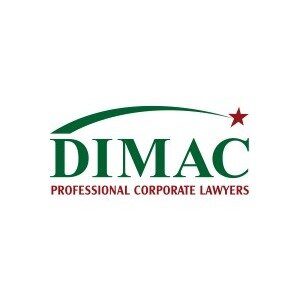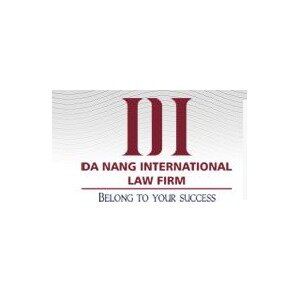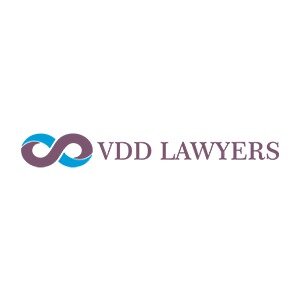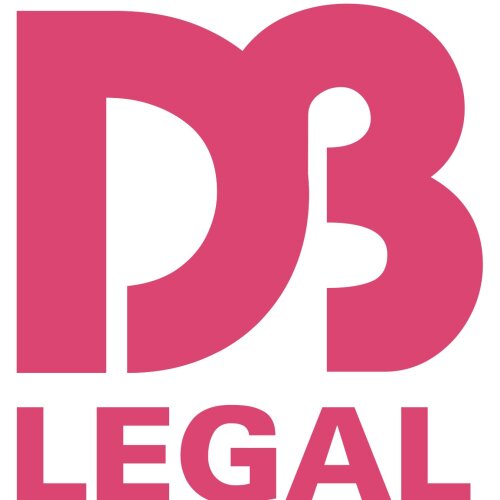Best Structured Finance Lawyers in Da Nang
Share your needs with us, get contacted by law firms.
Free. Takes 2 min.
List of the best lawyers in Da Nang, Vietnam
About Structured Finance Law in Da Nang, Vietnam
Structured finance in Da Nang, Vietnam refers to highly sophisticated financial instruments and transactions used by companies and financial institutions to manage risk, raise capital, and achieve specific financial objectives. This field typically involves complex arrangements such as securitization, asset-backed securities, collateralized debt obligations, syndicated lending, and project financing. The legal framework supporting structured finance activities in Da Nang is shaped by Vietnamese national law, regional regulations, and international best practices, all designed to provide stability and transparency in the financial markets.
Why You May Need a Lawyer
If you are considering engaging in a structured finance transaction, seeking legal advice is crucial. Common situations requiring a specialist lawyer in structured finance include negotiating large-scale project finance agreements, participating in asset-backed security arrangements, dealing with syndicated loans or bond issuances, and navigating cross-border financial transactions. A lawyer ensures compliance with Vietnamese laws, drafts and reviews complex contracts, manages regulatory approvals, and helps to address any disputes or unexpected issues that may arise. For businesses, investors, and financial institutions operating in Da Nang, legal guidance minimizes risks and maximizes successful outcomes in structured finance deals.
Local Laws Overview
Structured finance in Da Nang is governed primarily by Vietnamese national legislation, including the Law on Enterprises, the Law on Investment, and the Law on Credit Institutions. Da Nang applies these laws locally, with additional guidance from regulatory agencies such as the State Bank of Vietnam and the Ministry of Finance. Key legal aspects include:
- Requirements for registration and licensing of financial transactions and entities
- Rules governing collateral, asset securitization, and risk management
- Foreign investment controls and approvals
- Contract enforcement and dispute resolution procedures
- Compliance with anti-money laundering and anti-corruption regulations
- Taxation rules possibly affecting structured finance transactions
Frequently Asked Questions
What does structured finance typically involve in Da Nang?
Structured finance in Da Nang includes activities like project finance, securitization, syndicated lending, and issuing asset-backed securities, often for large infrastructure or real estate projects.
Is foreign investment in structured finance allowed in Da Nang?
Yes, foreign investors can participate, but must comply with Vietnamese laws on foreign ownership, registration, and approvals from relevant authorities.
What government agencies oversee structured finance activities?
The State Bank of Vietnam, the Ministry of Finance, and sometimes the State Securities Commission play key supervisory and regulatory roles.
Are there restrictions on the types of assets that can be securitized?
Yes, assets must be legally transferrable, free from encumbrance, and comply with specific regulatory requirements. Some categories, such as land-use rights, may involve additional restrictions.
How is dispute resolution handled in structured finance transactions?
Parties may agree to resolve disputes through Vietnamese courts or through arbitration, either in Vietnam or internationally, depending on contractual terms.
What are the most common risks in structured finance in Da Nang?
Common risks include regulatory changes, compliance issues, enforceability of contracts, counterparty risk, and foreign exchange controls for cross-border transactions.
Are there any specific tax considerations?
Tax treatment varies depending on the transaction structure, type of instrument, and parties involved. Consulting a legal and tax professional is recommended to ensure compliance.
Do structured finance transactions need to be registered locally?
Yes, most transactions, especially those involving asset transfers and security interests, must be registered according to Vietnamese law to ensure legal enforceability.
Can companies use offshore entities in structured finance deals?
Yes, but this typically requires approvals from the State Bank of Vietnam and must comply with currency control regulations and foreign investment rules.
How can a lawyer help with structured finance in Da Nang?
A lawyer can guide you through regulatory processes, draft and review contractual documents, advise on risk management, represent you in negotiations, and handle dispute resolution if needed.
Additional Resources
If you need further information about structured finance in Da Nang, the following resources can be useful:
- The State Bank of Vietnam (for regulatory guidance and approvals)
- The Ministry of Finance (for tax and financial market regulation)
- Da Nang Department of Planning and Investment (for business registration and investment support)
- State Securities Commission (for capital market and securitization matters)
- Vietnam Banking Association (for professional standards and support)
- Vietnam Chamber of Commerce and Industry (for business resources and legal updates)
Next Steps
If you are considering or already involved in a structured finance transaction in Da Nang, take the following steps to ensure legal compliance and protect your interests:
- Gather all relevant information and documentation about the transaction or project
- Consult with a qualified lawyer in structured finance who is familiar with both local and national Vietnamese regulations
- Discuss your objectives, potential risks, and key terms with your legal advisor
- Allow your lawyer to draft, review, and negotiate transactional documents
- Ensure all necessary filings, registrations, and government approvals are completed
- Stay informed on updates to financial regulations that may affect your transaction
Lawzana helps you find the best lawyers and law firms in Da Nang through a curated and pre-screened list of qualified legal professionals. Our platform offers rankings and detailed profiles of attorneys and law firms, allowing you to compare based on practice areas, including Structured Finance, experience, and client feedback.
Each profile includes a description of the firm's areas of practice, client reviews, team members and partners, year of establishment, spoken languages, office locations, contact information, social media presence, and any published articles or resources. Most firms on our platform speak English and are experienced in both local and international legal matters.
Get a quote from top-rated law firms in Da Nang, Vietnam — quickly, securely, and without unnecessary hassle.
Disclaimer:
The information provided on this page is for general informational purposes only and does not constitute legal advice. While we strive to ensure the accuracy and relevance of the content, legal information may change over time, and interpretations of the law can vary. You should always consult with a qualified legal professional for advice specific to your situation.
We disclaim all liability for actions taken or not taken based on the content of this page. If you believe any information is incorrect or outdated, please contact us, and we will review and update it where appropriate.














